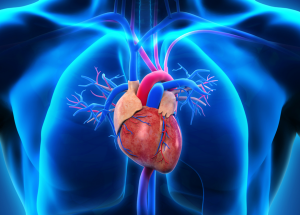Organic erectile dysfunction is the inability to achieve an erection (partially or completely) caused by organic causes, that is, physical diseases. However, physical and psychological causes often coexist. Failure to achieve a normal erection can lead to psychological problems that will worsen the situation the next time.
Nervous System Conditions
Diseases that pour on the nervous system (nerves in the brain, spinal cord, and penile organ) can become triggers for the development of erectile dysfunction. They can be:
- 1) epilepsy;
- 2) stroke (hemorrhage in the brain);
- 3) Alzheimer’s disease;
- 4) Parkinson’s disease;
- 5) diabetes;
- 6) metabolic syndrome;
- 7) dementia;
- 8) tumors in the brain, and others.
Cardiovascular & Blood Ailments
 Cardiovascular ailments as the cause of ED constitute approximately 50% of all cases in men over 50. These causes affect the condition of the arteries and veins. Damage to the arterial vessels that hold the penile organ with the blood necessary for an erection may result from atherosclerosis (the deposition of fats inside the vessels) or trauma in the pelvic or genital area.
Cardiovascular ailments as the cause of ED constitute approximately 50% of all cases in men over 50. These causes affect the condition of the arteries and veins. Damage to the arterial vessels that hold the penile organ with the blood necessary for an erection may result from atherosclerosis (the deposition of fats inside the vessels) or trauma in the pelvic or genital area.
The heart attacks (myocardial infarctions), peripheral vascular diseases (blood circulation pathologies), and hypertension (high arterial pressure) are also risk factors for the development of erectile problems in men.
Blood diseases can also be risk factors. For example, sickle cell disease significantly increases the risk of priapism. This is a very long erection (which lasts more than 4 hours) and a very painful condition. Priapism can cause ED, since this disease can damage the tissues and vessels of the penis, which leads to the inability to achieve a normal erection.
Hormonal Disorders
Imbalance in the level of hormones (testosterone, prolactin, or thyroid hormones) can cause problems with sexual function. The following hormonal disorders can cause erectile dysfunction:
1) hyperthyroidism (very active thyroid gland);
2) hypothyroidism (insufficiently active thyroid gland);
3) hypogonadism (a male disease characterized by a decreased level of testosterone).
Systemic and Other Ailments as Causes of ED
Some systemic diseases, ailments of the digestive tract and lungs can contribute to the occurrence of erectile dysfunction. These diseases include:
 1) scleroderma (skin induration);
1) scleroderma (skin induration);
2) severe kidney disease (such as kidney failure);
3) increased content of iron in the bloodstream (the so-called hemochromatosis);
4) obstructive lung disease.
In addition, erectile dysfunction occurs in 50-60% of men with diabetes. The risk of ED in this disease is 3 times higher than in a healthy population. In diabetes mellitus there is a violation of penile microcirculation, the nerve endings of the penis are affected. Harmful, smooth, muscle cells that make up the erectile tissue are damaged. Vascular diseases, atherosclerosis and arterial hypertension, which are frequent companions of diabetes mellitus, exacerbate microcirculatory disturbances and reduce arterial blood flow to the penis.
Diagnosis of Organic ED
During the diagnosis of organic ED, the doctor will assess the condition of the genitals, veins and arteries that are inside it. Before accurately determining the cause, the doctor will check arterial pressure, cholesterol, heart and vascular disease, testosterone (the main male hormone), prostate cancer and diabetes. These are the most common, organic causes of impotence in men. In addition, the medical treatment of these diseases (taking certain medications or performing a surgical procedure) can also cause problems with erection.
Treatment of Organic ED
 Impotence associated with organic causes is usually well treatable, but it is difficult to cure. In men who have injuries of arterial vessels, surgical intervention, as a rule, completely eliminates the disease. In most situations, conservative treatment of erectile dysfunction can restore the male potency “as needed.” That is, a man should take a pill some time before the alleged sexual act, and he will get a good erection. However, after the end of the action of the medicine, the beneficial effect will disappear.
Impotence associated with organic causes is usually well treatable, but it is difficult to cure. In men who have injuries of arterial vessels, surgical intervention, as a rule, completely eliminates the disease. In most situations, conservative treatment of erectile dysfunction can restore the male potency “as needed.” That is, a man should take a pill some time before the alleged sexual act, and he will get a good erection. However, after the end of the action of the medicine, the beneficial effect will disappear.
The most modern methods used for the treatment of ED are PDE5 inhibitors. These meds improve blood current in the genital area contributing to the achievement of an erection necessary for normal, sexual intercourse. You can choose Cialis or Viagra. These drugs are the most known and the most used among the family of PDE5 inhibitors. They are RX medical remedies, which means that you should have a prescription document issued by a health care professional.
However, some sites sell anti-ED medicines without a prescription. Buying medicines without a prescription, you risk your health because you can buy a fake. Therefore, it is better to use the services of official websites. There you can find what you want and get good discounts (for example, if you are a new customer, you can take advantage of the trial period for Cialis).
